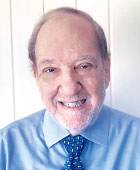Psychological Support Needs to Be Available to All COVID-19 Pandemic Responders
Abstract
Different types of responders and members of the media may require different approaches to helping them deal with their reactions to the pandemic.

In addition to addressing the psychological issues of the primary victims of the COVID-19 pandemic and their families, there is a need for psychological support for medical personnel, first responders, the media, and the psychological support teams themselves.
Psychiatrists and mental health professionals have established techniques to work with these groups during and after catastrophic events in which large numbers of people have been killed or injured. Of note was the work done during the AIDS epidemic and after the 9/11 terror attacks and mass shootings. Psychiatrists and mental health professionals experienced in the area of consultation-liaison (C-L) may be particularly appropriate for leadership roles in the delivery of such services, especially in running groups.
Critical Incident Stress Debriefing Should Be Avoided
Prior to the 9/11 terror attacks, the usual approach to caring for first responders, medical caregivers, members of the media, and the psychological caregivers themselves was to use CISD (Critical Incident Stress Debriefing). This is a technique in which a psychological consultant leads a discussion with specific groups of workers. For example, after a plane crash, the police, firefighters, emergency medical technicians, or reporters are encouraged to recount the horrible sights and sounds they had seen. This technique was based on a catharsis model that encourages participants to talk about their experiences and inner thoughts. While this might be helpful in individual or typical group therapy, experts realized that having each person describe his or her own painful experience in a group setting was usually not helpful. In fact, such situations were more likely to intensify the anxiety, panic, and worry of other participants of the group. The CISD model, although well intentioned, was not effective.
This doesn’t mean that there is no value for specific groups to meet and share experiences, but the approach should be one that is supportive and affirmative and generally does not combine different types of workers.
Group Meetings Conducted by Mental Health Professional Leaders for First Responders
Groups should be homogeneous, and meetings should most likely, in view of the epidemic, be held remotely using such services as Zoom. However, since some of these groups are already being assembled for administrative assignments, a portion of those meetings might be designated for psychological support.
The following are topics for discussion led by the group leader:
Review psychological symptoms that the first responders may encounter in the primary victims and resources for referring primary victims who need assistance.
Remind medical professionals to check whether their patients have adequate medication for psychiatric or other conditions.
Stress the importance of caregivers’ getting adequate sleep and spending time with their families.
Arrange for visits by superiors or government officials to express appreciation of the work being done by first responders. This is an important morale builder.
Acknowledge that it is not unusual to experience anxiety, depression, bad dreams, and so on. Do not encourage group discussions of individual difficulties or psychological symptoms (CISD method). Provide information about how to arrange confidential meetings with a mental health professional.
Group Meetings With Mental Health Professionals Conducted by Mental Health Professional Leaders
Psychiatrists, psychologists, social workers, and mental health nurses can meet together. Remote meetings are preferable. The leader should be experienced in running a group for this purpose, perhaps with a C-L background.
The following are topics for discussion led by the group leader:
There should be an initial assessment by the leader with input from the group as to who will provide individual psychological support to primary victims and who will run psychological support groups. Individuals can also be designated to reach out and offer support to various health, government, and political officials.
The group leader should review the psychological problems that group members are confronting, such as fear, anxiety, separation issues, depression, posttraumatic stress disorder, and grief. Such problems may be occurring in primary victims as well as in caregivers, including the mental health professionals themselves.
There should also be a discussion of the importance of avoiding the CISD approach in group settings. Of course, any individuals, including mental health professionals who are experiencing significant psychological symptoms, should be referred for individual sessions with a therapist for appropriate treatment.
Mental health professionals should be reminded that medications for psychiatric and other conditions may be interrupted. This can be followed by a discussion of how substitute prescriptions can be provided.
Group Meetings With Media Personnel Conducted by Mental Health Professionals
Members of the media who are covering the COVID-19 pandemic are knowledgeable about its threat to life and its impact on the nation as a whole. They are interviewing victims and their families as well as first responders and others impacted by the crisis. It has been shown that they often benefit from a group meeting led by a mental health professional. This would most likely be held remotely in view of the current epidemic.
The following are topics for discussion led by the group leader:
The group leader should acknowledge that it is not uncommon for members of the media to experience anxiety, depression, insomnia, bad dreams, and other mental health symptoms. As described above, the CISD method of having participants discuss their own symptoms in the group should be avoided.
Members of the media should be reminded that they play an important role in supporting the mental health of their audiences. This is useful and reassuring.
Members of the media should also be given information about how to access individual mental health care. ■



